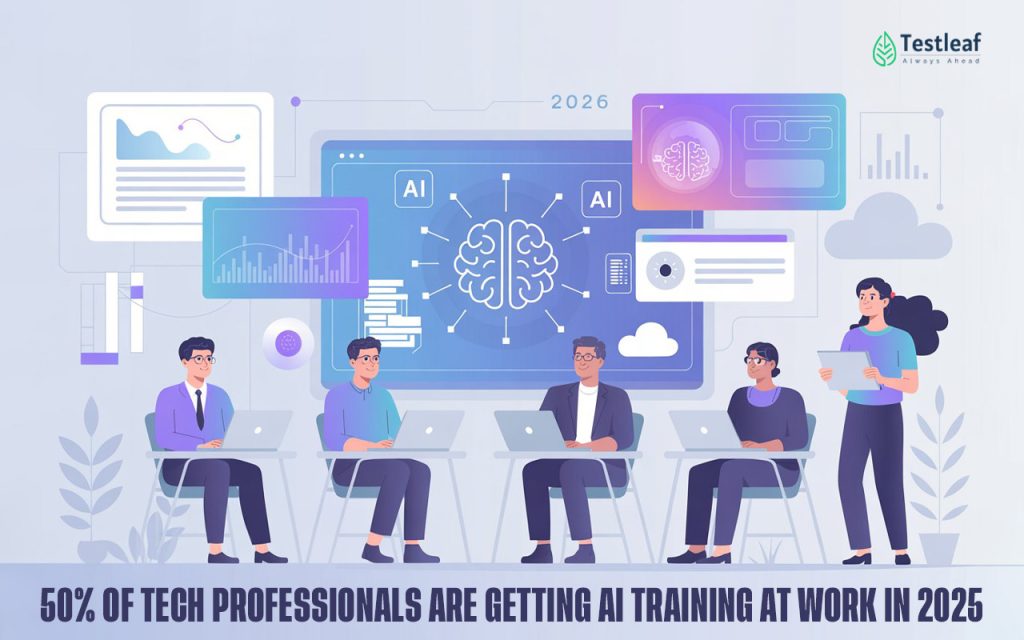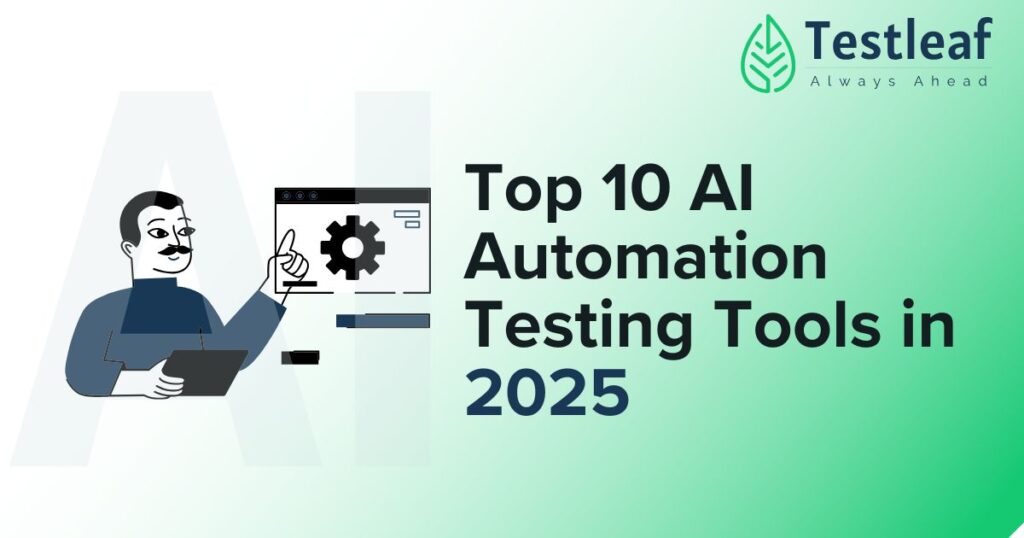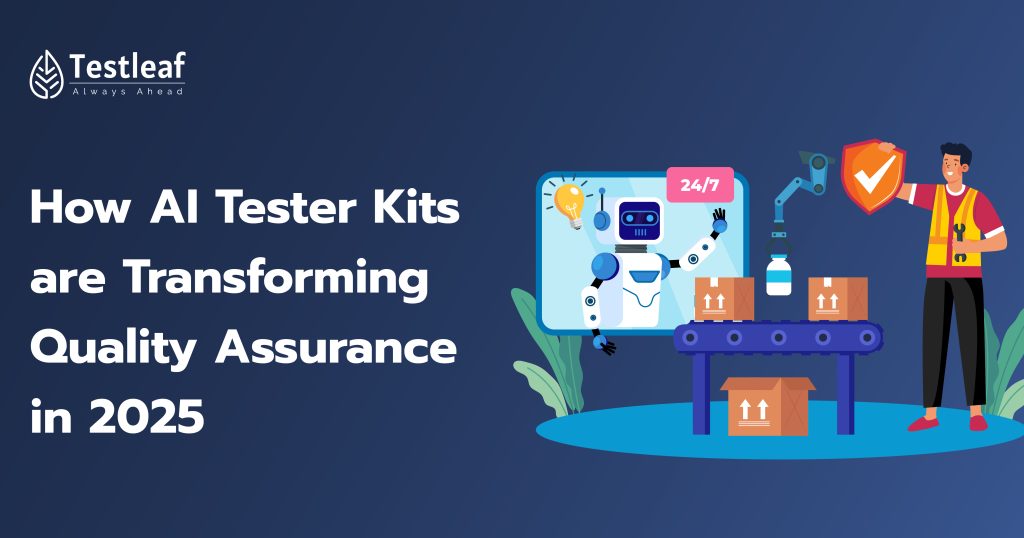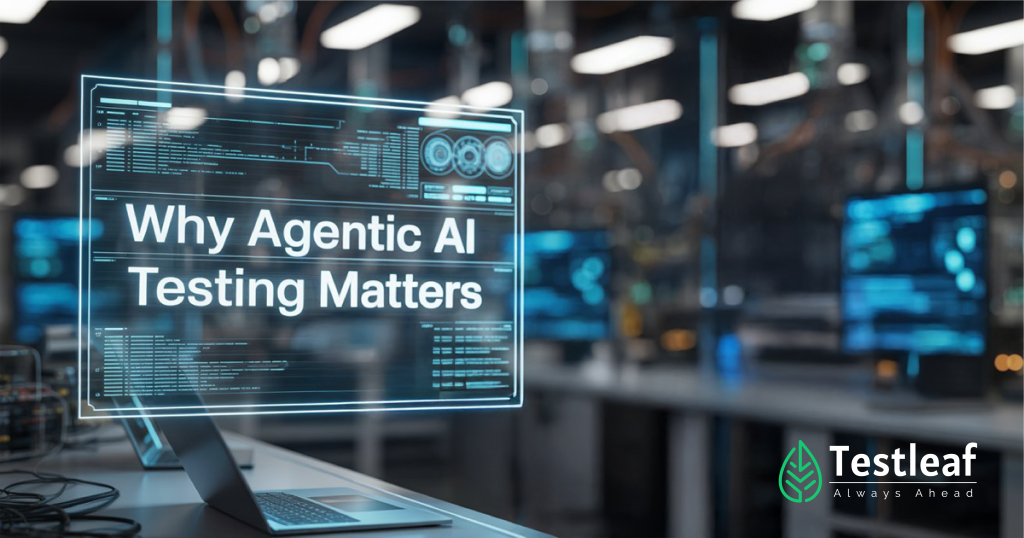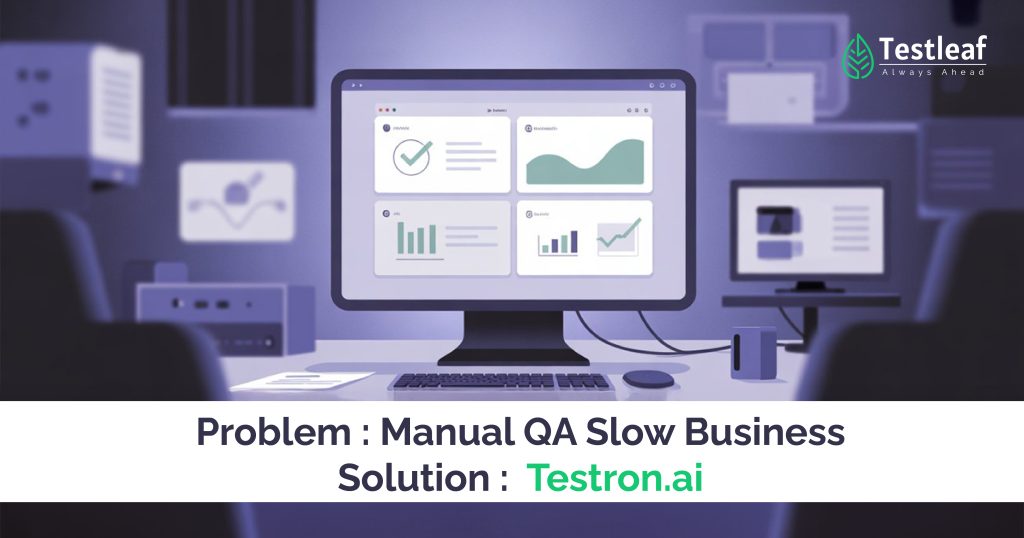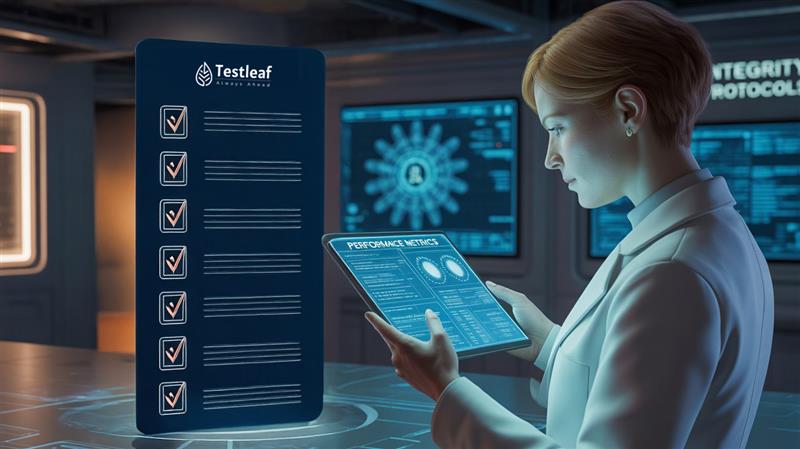In 2025, one of the biggest transformations in the tech world isn’t just about new tools or frameworks — it’s about AI training at work.
Reports reveal that nearly 50% of tech professionals are now undergoing AI training provided directly by their employers.
What’s driving this sudden shift?
Simple — AI is no longer a futuristic concept. It has become a workplace necessity, redefining how developers, testers, and engineers operate.
For software testers in particular, the rise of AI in software testing is creating a wave of change that no one can afford to ignore.
Let’s explore why this trend matters — and how it’s reshaping 2026 for tech professionals.
The AI Shift: From Buzzword to Business Need
A few years ago, Artificial Intelligence (AI) was seen as an advanced research topic or an optional skill. But in 2025, it has evolved into a core workplace competency. Companies across industries — from finance and healthcare to retail and automotive — are investing heavily in AI-powered solutions.
This isn’t just about automation or productivity. It’s about innovation and survival. Businesses now realize that without AI adoption, they risk falling behind competitors who can deliver smarter, faster, and more adaptive solutions.
That’s why AI training is being offered as an organizational investment, not just an employee perk. Whether it’s developers learning to integrate AI APIs, or testers understanding how AI models predict defects, every tech role is evolving.
You Might Also Like: selenium interview questions
Why Software Testers Are a Big Part of This Trend
Traditionally, software testers have been responsible for detecting bugs, ensuring product stability, and validating functionality. But with AI-based applications growing rapidly, the nature of testing itself is changing.
Manual testing can’t keep up with the speed, complexity, and unpredictability of AI-driven systems. Testers are now expected to handle dynamic outputs, self-learning models, and predictive behaviors — all of which require AI literacy.
Companies are training testers to:
- Use AI-powered testing tools for faster regression and functional validation.
- Implement predictive analytics to identify high-risk areas before code deployment.
- Leverage machine learning models to detect patterns and reduce false positives.
- Understand how to validate AI systems that make autonomous decisions.
In short, AI training helps testers move from execution to analysis, from reactive to proactive roles.
Why Companies Are Investing in AI Upskilling
The reason nearly half of tech professionals are getting trained in AI isn’t random — it’s strategic. Here’s what’s motivating employers:
1. Bridging the Skills Gap
AI skills are scarce, and hiring external talent is expensive. Training existing employees is both cost-effective and ensures knowledge retention within the organization.
2. Boosting Productivity
AI tools help teams automate repetitive work — like test case generation or log analysis — allowing professionals to focus on higher-value problem-solving tasks.
3. Driving Innovation
Upskilled employees bring fresh ideas to product development and testing processes, improving time-to-market and innovation cycles.
4. Employee Retention
When companies invest in career growth through AI training, employees feel more valued, reducing turnover and boosting job satisfaction.
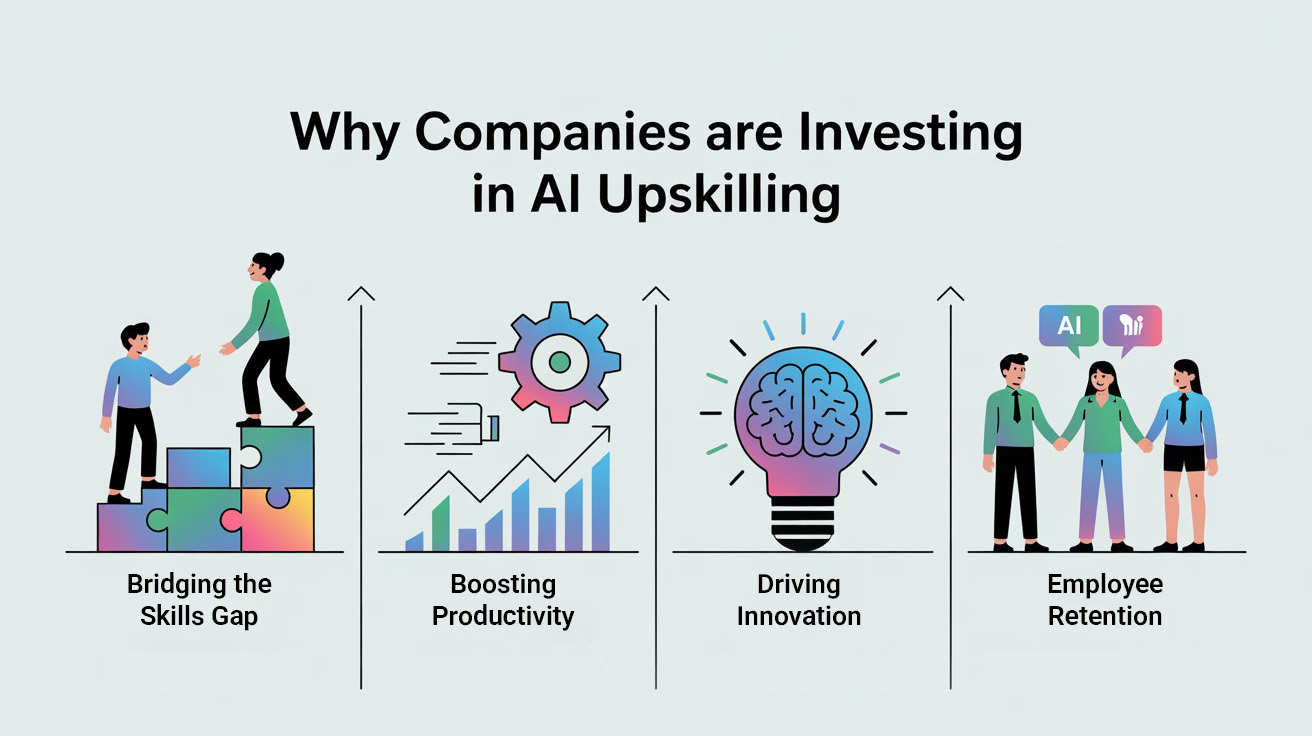
2026: The Year of the “AI-Ready” Tester
By 2026, the impact of this AI wave will be more visible than ever. We’ll see two distinct groups of tech professionals — those who can work with AI, and those who struggle because of AI.
For testers, this means mastering tools and frameworks that can learn and adapt on their own. It’s not about replacing manual testers but augmenting their skills with AI-driven intelligence.
Imagine running a suite of 10,000 test cases overnight — and waking up to a dashboard that not only flags bugs but also explains why they happened and how to fix them. That’s the power of AI in testing workflows.
The AI-trained testers of 2026 won’t just test applications; they’ll help improve AI models, validate predictions, and ensure ethical behavior in AI systems — becoming the quality guardians of intelligent products.
The Challenges Ahead
While the AI upskilling trend is exciting, it’s not without challenges:
- Tool Overload: The testing ecosystem is flooded with new AI tools, making it hard to choose the right one.
- Data Quality: AI models are only as good as the data they’re trained on — and poor test data can lead to misleading results.
- Ethical Testing: As AI systems make autonomous decisions, testers must also ensure fairness, transparency, and compliance with AI ethics.
These challenges highlight why structured AI training programs are critical. Without proper guidance, professionals may struggle to apply AI concepts effectively.
Explore More: automation testing interview questions
Final Thoughts: The Future Belongs to the AI-Trained Tester
The year 2025 marks a turning point — half of the tech world is already adapting to AI, and the other half will soon follow.
By 2026, AI skills won’t be a differentiator; they’ll be a baseline expectation. For software
testers, learning to work with AI isn’t about keeping up — it’s about leading the quality revolution in the AI era.
In this transformation, ai in software testing will become one of the most valuable skill combinations — blending human intuition with machine precision. The testers who embrace AI today will be the ones shaping smarter, faster, and more reliable systems tomorrow.
FAQs
1. Why are companies providing AI training to employees?
Companies are upskilling their teams in AI to improve productivity, reduce costs, and stay competitive in an AI-driven market. It’s a strategic move toward future-ready innovation.
2. How does AI training benefit software testers?
AI training helps testers automate repetitive tasks, use predictive analytics, and validate complex AI systems—making them more efficient and valuable in QA teams.
3. What are the biggest challenges in AI upskilling?
The main challenges include selecting the right tools, ensuring data quality, and maintaining ethics in AI testing and automation.
4. Will AI replace software testers?
No. AI will augment, not replace, testers by handling repetitive tasks while testers focus on analysis, validation, and ethical oversight.
5. What’s the future of AI in software testing?
AI will become a key part of test automation, helping detect bugs faster, predict failures, and validate intelligent systems with higher accuracy.
We Also Provide Training In:
- Advanced Selenium Training
- Playwright Training
- Gen AI Training
- AWS Training
- REST API Training
- Full Stack Training
- Appium Training
- DevOps Training
- JMeter Performance Training
Author’s Bio:

Content Writer at Testleaf, specializing in SEO-driven content for test automation, software development, and cybersecurity. I turn complex technical topics into clear, engaging stories that educate, inspire, and drive digital transformation.
Ezhirkadhir Raja
Content Writer – Testleaf
